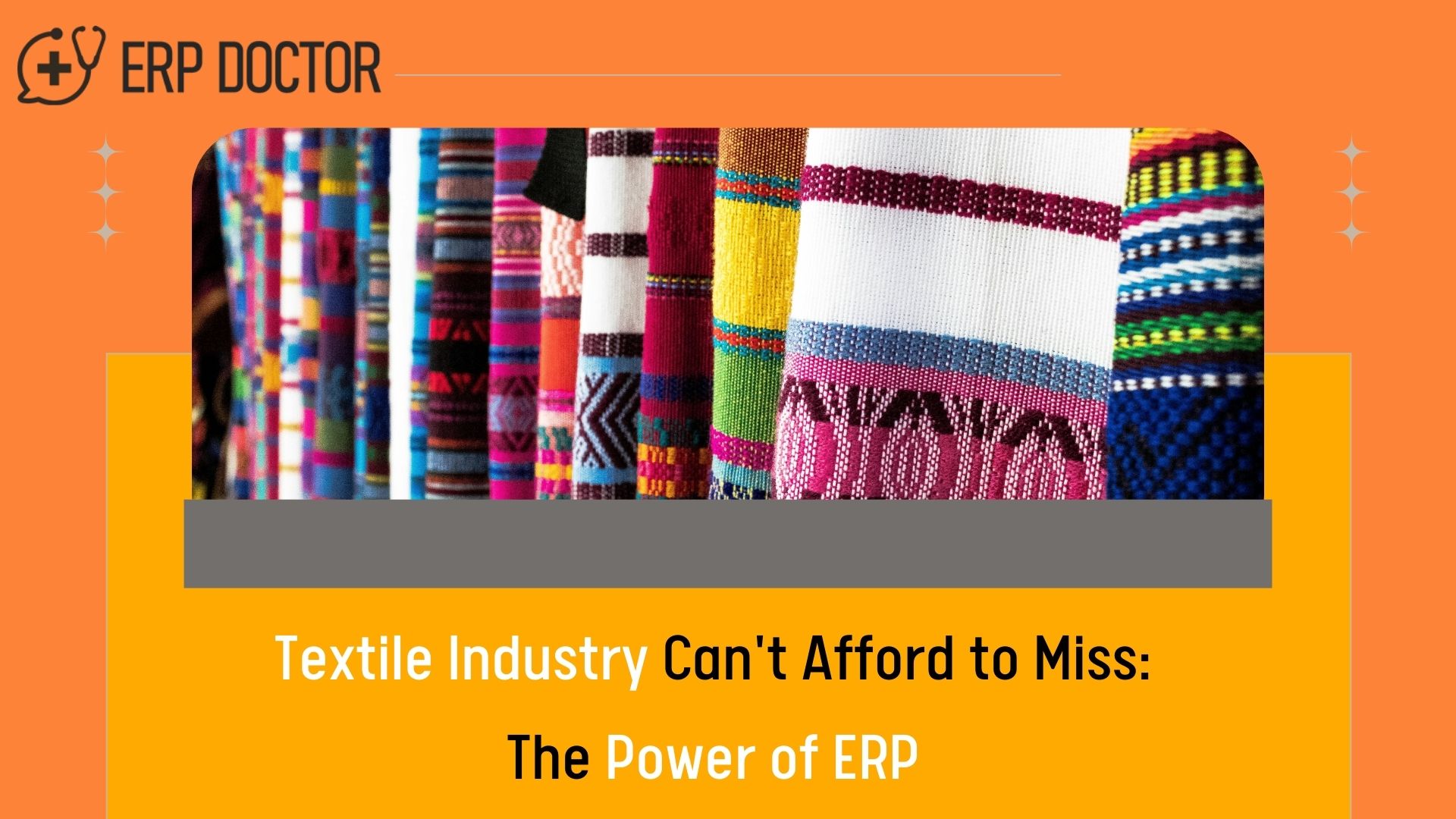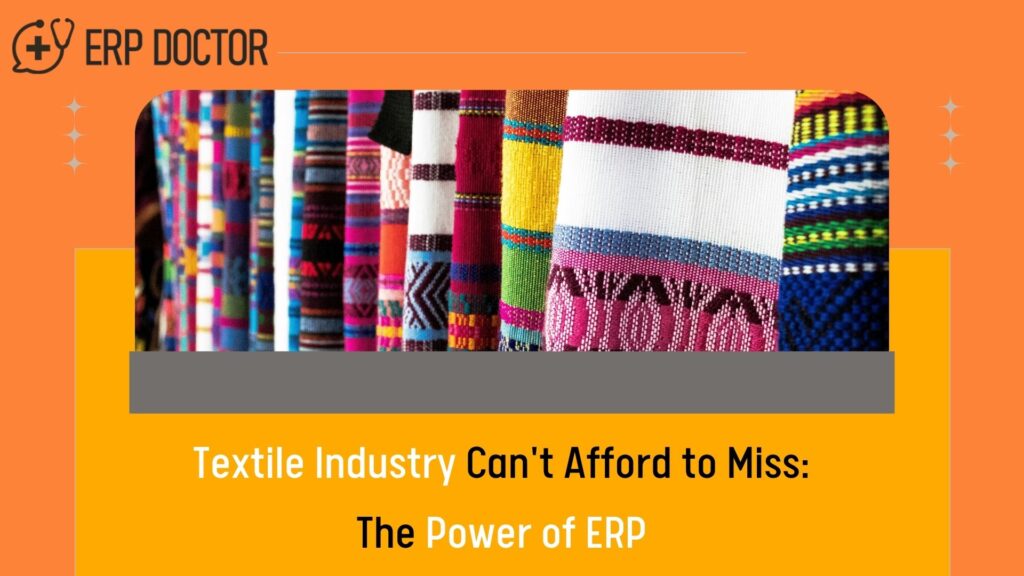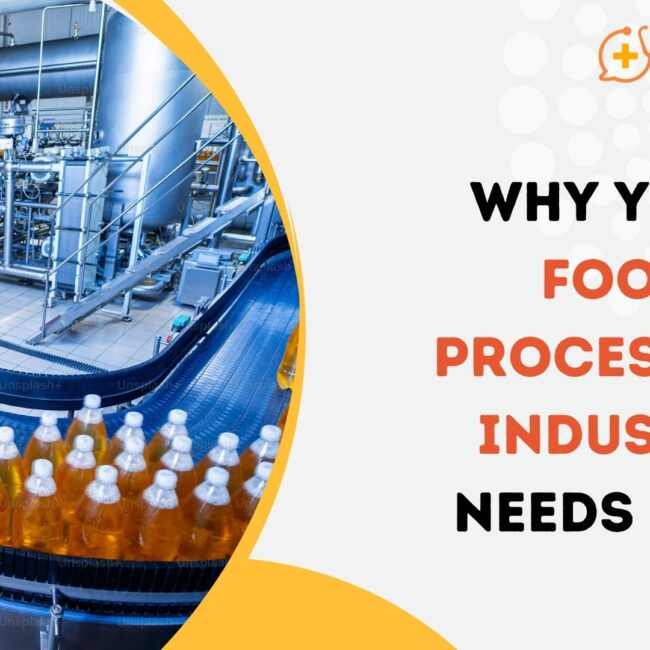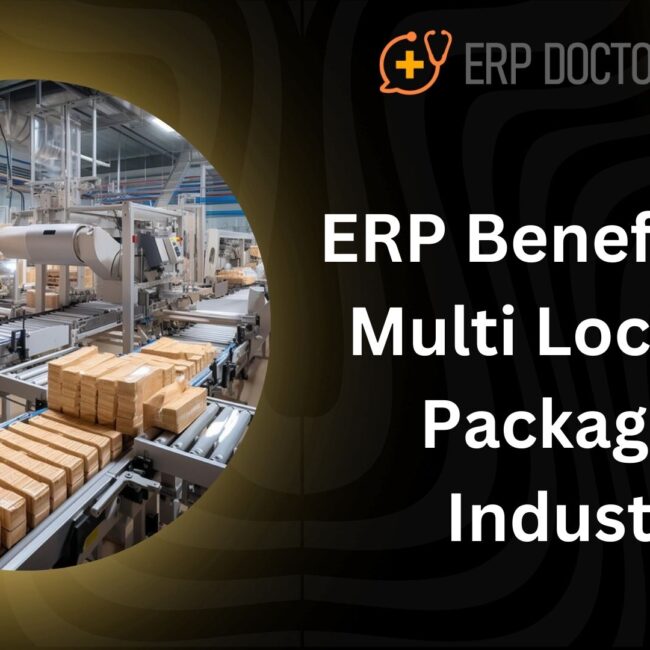
Textile Industry Can’t Afford to Miss: The Power of ERP

Fully Customizable ERP Software for Textile Industry
The textile industry is one of the most dynamic sectors globally, with evolving customer preferences, supply chain complexities, and intense competition. To stay competitive, textile companies need robust systems to manage their operations efficiently. Fully customizable ERP (Enterprise Resource Planning) software, such as SAP Business One (SAP B1), offers the perfect solution to address the unique challenges of the textile industry. By implementing SAP B1, textile companies can streamline their operations, improve productivity, and make data-driven decisions. With SAP B1, companies can also integrate all aspects of their business, from production planning to inventory management, and achieve greater visibility and control over their operations.
Table of Contents
1. Introduction to ERP in Textile Industry
ERP systems act as the backbone of operational efficiency in the textile industry, offering integrated tools to manage processes such as procurement, production, inventory, sales, and accounting. A customizable ERP allows businesses to tailor these tools to fit their specific needs, ensuring better outcomes.
2. Why Customization Matters in ERP Software
Every textile company has unique workflows, machinery, and supply chain dynamics. A one-size-fits-all ERP may lack the flexibility to accommodate these variations. Customizable ERP software ensures that businesses can:
- Adapt the system to specific production requirements.
- Optimize workflow for different textile categories like garments, fabrics, or home textiles.
- Include or exclude modules based on operational needs.
3. Key Features of a Customizable ERP for Textile Industry
Customizable ERP software designed for the textile industry should include:
- Production planning and scheduling
- Inventory tracking and management
- Sales and distribution management
- Supplier relationship management
- Quality assurance and control
- Costing and profitability analysis
4. Streamlining Production Processes
Customizable ERP systems streamline production by automating processes such as:
- Production scheduling
- Machinery allocation
- Process monitoring and tracking
- Quality assurance at each production stage
This ensures higher efficiency, reduced downtime, and minimal waste.
5. Inventory Management and Control
Textile companies often deal with raw materials like yarns, dyes, and fabrics, which require meticulous inventory control. Customizable ERP systems enable businesses to:
- Monitor stock levels in real-time.
- Manage raw materials and finished goods effectively.
- Set alerts for reordering critical supplies.
- Avoid overstocking or understocking situations.
6. Enhancing Supply Chain Management
The supply chain in the textile industry is complex, involving multiple stakeholders like suppliers, transporters, and distributors. A customizable ERP offers:
- Real-time tracking of supply chain activities.
- Seamless coordination between departments.
- Improved vendor management.
- Streamlined logistics and delivery.
7. Improving Financial Management
ERP systems consolidate financial data across departments, providing better insights into costs and revenues. Customizable financial modules can help textile businesses:
- Track expenses specific to production stages.
- Generate automated financial reports.
- Ensure compliance with tax and regulatory standards.
- Simplify payroll and accounts payable/receivable processes.
8. Boosting Customer Relationship Management
A robust ERP system includes CRM functionalities to enhance customer experiences. Features include:
- Maintaining detailed customer profiles.
- Tracking order histories.
- Offering personalized solutions and pricing.
- Automating customer communications.
9. Integration with IoT and Smart Manufacturing
With the rise of Industry integrating ERP systems with IoT devices is becoming essential. Customizable ERP software allows textile manufacturers to:
- Monitor machine performance in real-time.
- Predict maintenance needs.
- Track environmental conditions like humidity or temperature in production units.
- Analyze data for better decision-making.
10. Benefits of Customizable ERP for Textile Industry
The advantages of implementing a fully customizable ERP system include:
- Increased operational efficiency.
- Enhanced decision-making through real-time data.
- Better compliance with industry standards.
- Scalability to accommodate business growth.
- Improved collaboration across departments.
- Cost savings through process automation.
FAQs
Q1: What is ERP customization, and why is it important for textile companies?
ERP customization involves tailoring the software to meet specific business needs. For textile companies, it ensures that unique workflows, production methods, and inventory requirements are addressed effectively.
Q2: How does a customizable ERP improve production efficiency?
Customizable ERP software automates production planning, tracks progress in real-time, and ensures optimal use of resources, leading to higher efficiency and reduced costs.
Q3: Can ERP systems integrate with existing machinery in textile factories?
Yes, many modern ERP systems can integrate with IoT-enabled machinery, allowing real-time data exchange and improved operational control.
Q4: What are the cost implications of implementing a customizable ERP?
The cost of implementation depends on the level of customization required. While initial costs may be higher, the long-term benefits of efficiency and scalability outweigh the investment.
Q5: Is training required for employees to use the ERP system?
Yes, training ensures that employees can use the ERP system effectively. Most ERP vendors provide comprehensive training and support during and after implementation.
Q6: How does a customizable ERP handle compliance with industry regulations?
Customizable ERP systems include modules for tracking and reporting compliance metrics, ensuring adherence to regulations and standards.
Q7: Can small textile businesses afford a customizable ERP?
Yes, many vendors offer scalable ERP solutions that can be tailored to the budget and requirements of small and medium-sized textile businesses.
Q8: How long does it take to implement a customizable ERP?
The implementation timeline varies based on the complexity and size of the customization. It typically ranges from a few weeks to several months.
Q9: Does a customizable ERP offer mobile accessibility?
Yes, most modern ERP solutions include mobile applications, allowing users to access data and perform tasks remotely.
Q10: What kind of support is available post-implementation?
ERP vendors typically provide ongoing support, including updates, troubleshooting, and training, to ensure the system’s smooth functioning.
Fully customizable ERP software is a game-changer for the textile industry, offering tailored solutions that address unique challenges while enhancing efficiency and profitability. By investing in a robust ERP system, textile businesses can streamline operations, improve decision-making, and stay competitive in a rapidly evolving market.
Contact us today to explore ERP solutions tailored to your rubber production needs.







